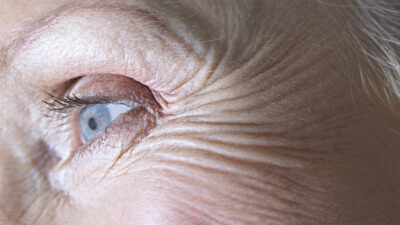
It’s been a long, long Monday.
You get home from work, eat dinner, clean up, flop on the couch, and doze off watching TV or mess with your phone. Then you repeat the same routine Tuesday, Wednesday, Thursday, and Friday. Before you know it, you’ve hit the weekend, and it felt like all you did all week was work.
In reality, you had an hour or two to do whatever you wanted each night. But because you didn’t consciously invest that time in meaningful or satisfying activities, every day felt like a grind.
So how do you shake up this routine and begin to invest your time in activities that truly satisfy and refresh you?
As a time management coach, I’ve seen that these five strategies can help you feel like you have more free time and feel happier with how you invest it.
PLAN YOUR DOWNTIME IN ADVANCE
Making a positive choice on what to do in the evening is really difficult when you already feel drained. A better option is to think ahead about your free time. That could include scheduling a dinner out, time to cook, a visit to the gym, or an opportunity to review your retirement accounts. If you’ll need to coordinate with others, I recommend scheduling events at least a few days in advance, for example, reaching out on Wednesday or Thursday for weekend plans. You may even want to put a recurring reminder in your calendar on Wednesdays to prompt you to think about the weekend. And for solo activities, such as reading or getting something done around your home, some conscious thinking even the morning of can better your chances of a good evening. For instance, on your way to work, you may decide that tonight you’ll go on a hike or finally tackle some outstanding bills.
PREP FOR ACTION
Since free time is so limited, it’s essential that you prep in advance to take full advantage of your time. That could mean packing a gym bag so you can go straight from work to the gym, writing up a list of errands to run so that you can zip out at the end of the day and get right to them, or setting out what you’ll need to work on a home project later that evening. Teeing yourself up the night before lowers the chances of inaction and also incentivizes you to leave work on time. When you have a higher level of consciousness, you are aware that extra time in the office means less time for whatever else you want to do, so you have motivation to leave.
DO WHAT SATISFIES
Not all activities will equally benefit your life. Watching TV or scrolling on your phone isn’t intrinsically bad or wrong, but these activities won’t produce the mood-enhancing brain chemicals that the most effective stress-relief strategies can. The best activities include exercising or playing sports, attending a religious service, reading, listening to music, spending time with friends or family, getting a massage, going for a walk, meditating, yoga, or hobbies.
Each person has slightly different preferences, so make a list of the specific activities that make you most happy. For example, if you’re extroverted, that might include getting out and around people as much as possible, whereas an introvert might need more solo activities. Then try to get some of them in each week. Maybe your list includes playing soccer, going on walks, reading, and spending time with your significant other. Clarity on what you want to do makes it easier to make those activities a priority.
DOUBLE THE BENEFIT
A simple way to multiply the benefit of your precious free time is to layer activities. For example, go on a walk with a friend, or work on a creative hobby with your significant other—either doing the same activity or being in the same room. One thing I discovered about myself in the last few years is that I would rather meet socially for a hike than drinks or dinner. So now, when friends suggest getting together, I try to steer us toward an outdoor activity. That way I get in social time and do something that refreshes me on a deep level.
INCREASE YOUR SENSE OF TIME
Another little trick to give yourself the sense that you have more free time is to do more than one activity in an evening. For example, instead of just working out, also take 10-15 minutes to read, or instead of just going out for dinner, also sort the mail. I don’t recommend packing your free time too tightly. But by doing multiple activities in one evening, it makes you feel like you experienced more within the same amount of time.
Can you watch TV at night? Absolutely. I’m not suggesting that you must ban yourself from all electronic devices in the evening. But you should consider a more intentional approach to your free time. Some small tweaks to how you spend it can make a huge impact to the sense that you have free time, your overall energy levels, and your satisfaction with life in general.
Original article here




 They might expect to forget things due to their age, so they stop relying on their memories. It’s even possible that the stress of holding negative ideas about ageing contributes to chronic inflammation and more health problems in the long term. So living up to the stereotype of an older person might increase the very problems they fear.
They might expect to forget things due to their age, so they stop relying on their memories. It’s even possible that the stress of holding negative ideas about ageing contributes to chronic inflammation and more health problems in the long term. So living up to the stereotype of an older person might increase the very problems they fear.

 Then quantum mechanics came along. It’s so complicated people still argue about it 100 years later! The math, though, is beautiful and clean. Randomness is fundamentally an illusion because there is no randomness in the math, even though it might feel random. I’m saying the same thing about time. Even though the flow of time is fundamentally an illusion, there is nothing flowing about the math, the equations aren’t changing, there is just a single four-dimensional pattern, albeit a very complicated and beautiful one, in spacetime. If you study it carefully, you’ll realize it’s going to feel like a flow of time. As physicists, that’s ultimately what we need to explain: Why does everything feel the way it does? We shouldn’t be so naive as to think that things will always feel the way they actually are, because the history of physics is a long sequence of examples of where we realize that the ultimate nature of things is very different from how they feel.
Then quantum mechanics came along. It’s so complicated people still argue about it 100 years later! The math, though, is beautiful and clean. Randomness is fundamentally an illusion because there is no randomness in the math, even though it might feel random. I’m saying the same thing about time. Even though the flow of time is fundamentally an illusion, there is nothing flowing about the math, the equations aren’t changing, there is just a single four-dimensional pattern, albeit a very complicated and beautiful one, in spacetime. If you study it carefully, you’ll realize it’s going to feel like a flow of time. As physicists, that’s ultimately what we need to explain: Why does everything feel the way it does? We shouldn’t be so naive as to think that things will always feel the way they actually are, because the history of physics is a long sequence of examples of where we realize that the ultimate nature of things is very different from how they feel. Time is one of those things that most of us take for granted. We spend our lives portioning it into work-time, family-time and me-time. Rarely do we sit and think about how and why we choreograph our lives through this strange medium. A lot of people only appreciate time when they have an experience that makes them realise how limited it is.
Time is one of those things that most of us take for granted. We spend our lives portioning it into work-time, family-time and me-time. Rarely do we sit and think about how and why we choreograph our lives through this strange medium. A lot of people only appreciate time when they have an experience that makes them realise how limited it is.
 Time travel makes regular appearances in popular culture, with innumerable time travel storylines in movies, television and literature. But it is a surprisingly old idea: one can argue that the Greek tragedy Oedipus Rex, written by Sophocles over 2,500 years ago, is the first time travel story.
Time travel makes regular appearances in popular culture, with innumerable time travel storylines in movies, television and literature. But it is a surprisingly old idea: one can argue that the Greek tragedy Oedipus Rex, written by Sophocles over 2,500 years ago, is the first time travel story. Kurt Vonnegut’s anti-war novel Slaughterhouse-Five, published in 1969, describes how to evade the grandfather paradox. If free will simply does not exist, it is not possible to kill one’s grandfather in the past, since he was not killed in the past. The novel’s protagonist, Billy Pilgrim, can only travel to other points on his world line (the timeline he exists in), but not to any other point in space-time, so he could not even contemplate killing his grandfather.
Kurt Vonnegut’s anti-war novel Slaughterhouse-Five, published in 1969, describes how to evade the grandfather paradox. If free will simply does not exist, it is not possible to kill one’s grandfather in the past, since he was not killed in the past. The novel’s protagonist, Billy Pilgrim, can only travel to other points on his world line (the timeline he exists in), but not to any other point in space-time, so he could not even contemplate killing his grandfather. Atomic clocks, combined with precise astronomical measurements, have revealed that the length of a day is suddenly getting longer, and scientists don’t know why.
Atomic clocks, combined with precise astronomical measurements, have revealed that the length of a day is suddenly getting longer, and scientists don’t know why. A comparison between these estimates and an atomic clock has revealed a seemingly ever-shortening length of day over the past few years.
A comparison between these estimates and an atomic clock has revealed a seemingly ever-shortening length of day over the past few years. In modern times, clocks underpin everything people do, from work to school to sleep. Timekeeping is also the invisible structure that makes modern infrastructure work. It forms the foundation of the high-speed computers that conduct financial trading and even the GPS system that pinpoints locations on Earth’s surface with unprecedented accuracy.
In modern times, clocks underpin everything people do, from work to school to sleep. Timekeeping is also the invisible structure that makes modern infrastructure work. It forms the foundation of the high-speed computers that conduct financial trading and even the GPS system that pinpoints locations on Earth’s surface with unprecedented accuracy.